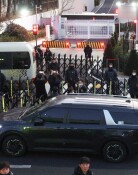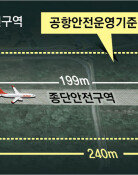G20 Summit and N. Korea`s Threats
The Group of 20 Summit to be held in Seoul in 77 days is an opportunity for South Korea to show off its power to the world. Some 15,000 people will participate, including world leaders, representatives and journalists from about 30 countries. G20 countries represent two thirds of the world population and their combined GDP accounts for 81 percent of the global total. A successful hosting will significantly enhance the nation`s world status and the pride of the people.
The Toronto G20 summit held in June failed to reach a consensus on 80 percent of its agenda, passing it over to the Seoul event. This suggests that countries do not easily give up economic issues directly related to their national interests.
The South Korean government is preparing a global financial safety net and development issues as key agenda items in addition to existing ones, including international coordination of macroeconomic policies and reform of global financial organizations. Seoul should make the best of the remaining time to narrow differences among member countries and seek common ground.
The host country is responsible for drawing up and implementing security measures against terrorism and violent demonstrations. Demonstrators from all around the world have stormed international conferences. At the Toronto summit, about 10,000 people held violent protests. Yet South Korea has an additional risk factor -- North Korea.
The communist country provoked a naval skirmish in the Yellow Sea during the 2002 FIFA World Cup soccer finals. The possibility of another North Korean provocation aimed at the G20 summit cannot be ruled out since the world`s eyes and ears will be focused on Seoul. The South Korean military and police should have a thorough readiness posture.
Signs indicate that Seoul is seeking to shift its policy toward Pyongyang to ensure a successful hosting of the G20 summit. A case in point is the ruling Grand National Party`s proposal to resume rice aid to the North. The presidential office said President Lee Myung-bak chose not to replace incumbent ministers in charge of diplomacy, national security and economy to ensure a successful summit. It is doubtful that the needed replacement of these officials has been delayed because of the summit. The international event is a huge priority for South Korea, but it cannot be the absolute goal per se.
The government should not compromise its principles in dealing with the North and long-term national interests and goals for the G20 summit. It is preposterous for Seoul to shift from sanctions to appeasement toward Pyongyang with a "just-this-once" attitude because it will send the wrong signal to the North. The Stalinist country could attempt to extort compensation by posing a military threat every time the South hosts an international event. Regardless of the summit, Seoul should punish any provocation by Pyongyang to clearly show that its principles toward the North are never swayed.







